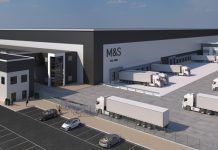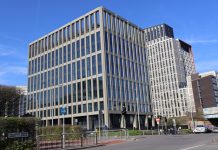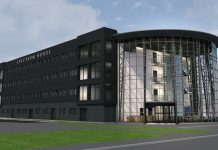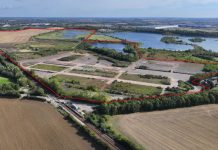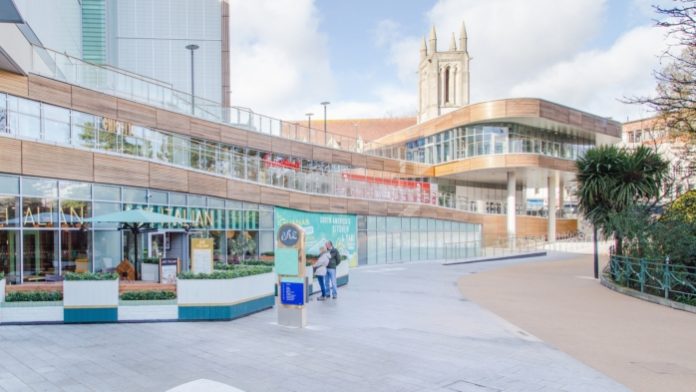The site of an old bus station and NCP car park in Bournemouth has been transformed into a modern leisure complex, complete with intelligent lighting control solutions from CP Electronics.
The UK’s largest supplier of lighting controls has supplied a range of microwave presence detectors and its RAPID fully addressable lighting control system to the project to cover the main public areas and back-of-house corridors, in addition to the various types of external feature lighting. For ease of use and effective time management, the controls can be operated via a head end PC. The installation is enabling building managers to optimise the use of lights in various sections of the complex through one central location.
Far from a simple project, CP worked closely with the main Building Services Contractor, Accolade Building Services, to facilitate a seamless installation for this challenging building design.
Dave Emerton, Commercial Director at Accolade Building Services, explained: “The design of the building was quite complex. There were some areas where you simply could not install cables from one corridor to another, so we needed to think carefully about which products to install, and how we were going to install them. CP Electronics worked with us closely on this project, together with our lighting designer, to mentally walk through the corridors to plan how we could run cables and ensure that we kept within the maximum cable distance allowance. For any system to operate, you have to be mindful of the length of cable you go up to from one part of the building to another. The layout in this project, was such that we could use 300m of cable to connect our circuits.”
The installation of microwave detectors is enabling more efficient use of lighting, particularly in corridor areas. These detect the slightest movement in the detection zone, and activate the lighting accordingly, ensuring corridors are only lit when required to prevent wasted energy. Microwave detectors are ideal for large spaces, areas that have an awkward shape, or where fine motion detection is required. They were well-suited to the corridors within this building.
The detectors are connected to CP’s RAPID relay modules, which connect to a head end PC. This enables building managers to switch individual groups of luminaires on and off and exercise more effective time management; for example, programming the lights to turn off during times when the leisure complex is closed. This is enabling building managers to effectively optimise the use of lighting, based on building use and footfall.
Phil McBrown from CP Electronics, who worked closely with Accolade on the project, explained: “The whole purpose of rebuilding the old Exeter Road was to create a modern and vibrant space which would attract more people to the area. As a result, the building owners and managers want to ensure that they have modern and effective systems installed within the building which enable them to make energy savings through local presence detection.
Accolade Building Services is a frequent user of CP’s intelligent lighting control systems, having worked with the company on numerous previous projects. Dave Emerton summed up why the two continue to work together. “When you look at the lighting technology that would have been installed at a site like this ten years ago, it is nothing like the products that are installed today. Ten years ago, we’d have looked at installing fluorescent lamps, now we use LEDs. Technology has moved on leaps and bounds.
“We have always found that CP Electronics has remained at the cutting edge of this, with a range of modern products, which can make lighting more efficient for building operators and end users. The support they provided for the design and installation of this project was as useful as the products themselves and enabled us to install the most effective solution.”

